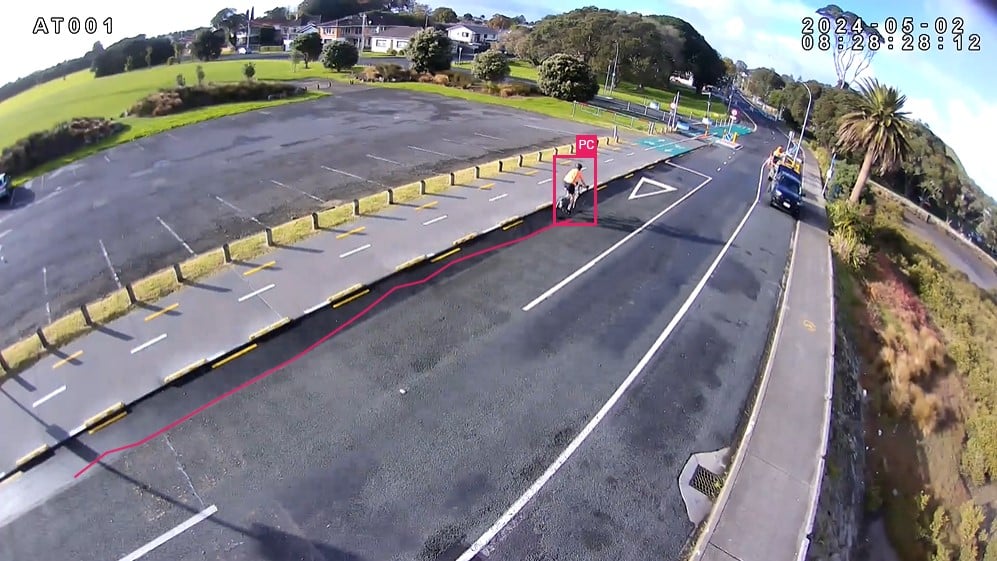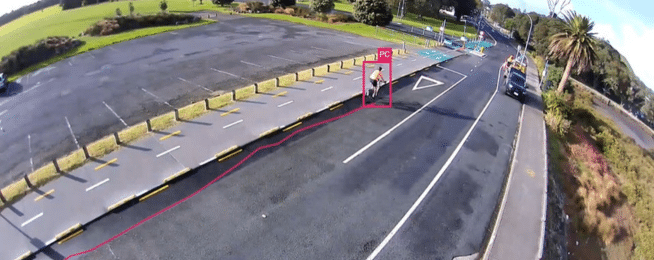Bicycle Network has partnered with Auckland Transport to take Artificial Intelligence Road Surveys (AIRS) international, across the ditch to New Zealand.
The week-long study investigated the travel patterns and behaviours of road users at two sites in Tāmaki Makaurau in Auckland, where trial bidirectional cycleways were recently installed as part of Auckland Transport’s “Streets for People” program.
Prior to 2024, riders had to negotiate motor-vehicle traffic in the road lane, deterring less confident riders, as no bike-specific infrastructure was present at either site. The Streets for People program aims to make it “easier for people to travel by walking, biking, or wheeling,” by “working with local communities to design and test temporary or semi-permanent changes to streets in their area”.
Using AIRS technology, the study found that bike riders overwhelmingly preferred riding on the cycleway (as opposed to the road) where there was a higher volume of motor vehicle traffic.
AIRS works by automatically detecting and categorising road users when they pass through an area, tracking where they are riding (road, cycleway, or footpath) and their movement path.

Bicycle Network also helped Auckland Transport understand how a trial aimed at reducing the occurrence of night-time antisocial behaviour at one of the sites was performing.
Since the opening the of the Ngā Hau Māngere Bridge in August 2022, there has been a pattern of overnight antisocial behaviour negatively impacting the community. The trial, which restricts overnight vehicle access to the site (using a gate) while maintaining access for those who need it, aims to address this issue.
Bicycle Network reported on the number of vehicles that turned around at the gate each night, the number and type of vehicles that were allowed through, and the occurrence or pattern of any potentially anti-social behaviour such as loitering or large group gatherings each night.
Other information gathered from the study included boat-trailer usage, the proportion of pedestrians walking on the cycleway (rather than the footpath), and the occurrence of any near-miss incidents or behaviour posing a risk to vulnerable road users.
Findings from the detailed and customised study will help Auckland Transport to evaluate the effectiveness of current treatments and programs. Bicycle Network also provided specific recommendations for treatment options to improve safety and make it easier for people to choose active travel.
Or become our friend and subscribe to receive our fortnightly newsletter.


